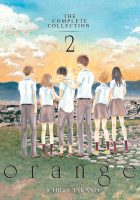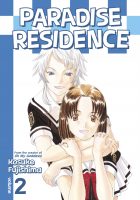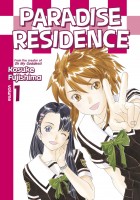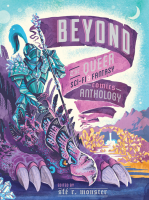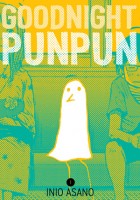My News and Reviews
Last week was yet another week during which I wasn’t online much, though this time it was because I was on a short family vacation in Ohio to visit my folks. I did however still manage to post my review of the absolutely wonderful children’s book Are You an Echo?: The Lost Poetry of Misuzu Kaneko. The book, fully illustrated by Toshikado Hajiri, combines a biographical narrative of Kaneko’s work and life written by David Jacobson along with a selection of Kaneko’s poems presented in both the original Japanese and in English translation. Are You an Echo? is a beautiful book that adults will be able to appreciate, too; I wasn’t previously familiar with Kaneko’s poetry and am incredibly glad to have been introduced to it.
Although I was busy with family last week, a few things did catch my eye online: Vertical’s Fall 2016 manga licensing survey is now live for those interested in suggesting titles that they’d like to see the company publish in English; The Mystery Writers of Japan have released a very useful website in English which includes great information such as an outline of the group’s history and a list of recent English translations of the members’ works; As for cool queer comics Kickstarters, there is a newly launched campaign to collect Tab Kimpton’s delightful Minority Monsters comics in a single volume along with additional bonus content.
Quick Takes
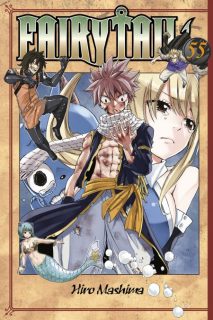 Fairy Tail, Volume 55 by Hiro Mashima. With all of the recent developments in Fairy Tail it seems like the series might in fact be reaching its final story arcs. Granted, Mashima could just as easily stretch things out for quite a bit longer as he has repeatedly done in the past. Often Fairy Tail feels rather directionless to me, as though the creator is making things up as he goes (which he has admitted to) or isn’t sure exactly what he wants to do with the series. That being said, when Mashima actually manages to bring together disparate storylines and plot developments together in a way that makes sense and seems planned from the beginning (even if it actually wasn’t) the results can be thrilling. The fifty-fifth volume of Fairy Tail opens with one of the biggest game-changing reveals in the series as Natsu and Zeref face each other down. It’s a dramatic encounter and works tremendously well. Sadly, the rest of the volume isn’t quite as strong as its opening and many of the other plot twists and backstories feel forced at best. Still, this most recent story arc is probably my favorite out of those that I’ve so far read. (I started reading Fairy Tail part way through, so there are several arcs that I’ve missed.) I especially appreciate how it gives the tournament arc, which grew increasingly tedious, a greater purpose in the series as a whole. The action sequences and battles continue to be an exciting part of the manga as well, and there are plenty of those to be found in this volume.
Fairy Tail, Volume 55 by Hiro Mashima. With all of the recent developments in Fairy Tail it seems like the series might in fact be reaching its final story arcs. Granted, Mashima could just as easily stretch things out for quite a bit longer as he has repeatedly done in the past. Often Fairy Tail feels rather directionless to me, as though the creator is making things up as he goes (which he has admitted to) or isn’t sure exactly what he wants to do with the series. That being said, when Mashima actually manages to bring together disparate storylines and plot developments together in a way that makes sense and seems planned from the beginning (even if it actually wasn’t) the results can be thrilling. The fifty-fifth volume of Fairy Tail opens with one of the biggest game-changing reveals in the series as Natsu and Zeref face each other down. It’s a dramatic encounter and works tremendously well. Sadly, the rest of the volume isn’t quite as strong as its opening and many of the other plot twists and backstories feel forced at best. Still, this most recent story arc is probably my favorite out of those that I’ve so far read. (I started reading Fairy Tail part way through, so there are several arcs that I’ve missed.) I especially appreciate how it gives the tournament arc, which grew increasingly tedious, a greater purpose in the series as a whole. The action sequences and battles continue to be an exciting part of the manga as well, and there are plenty of those to be found in this volume.
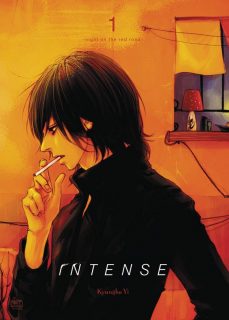 Intense, Volume 1: Night on the Red Road by Kyungha Yi. I’ve deliberately been keeping a lookout for new print releases from Netcomics, but even if I wasn’t Yi’s Intense would have caught my attention. The series’ cover artwork is stunning and the manhwa’s production values and quality is some of the best that I’ve seen from Netcomics. Intense was originally released in six digital volumes, but the print edition has been collected into four. The interior artwork, though it’s not in color, is just as beautiful, striking, and moody as Yi’s cover illustrations. The story is likewise very moody and at times can be extremely dark and violent. The series follows Jiwoon, an assassin and bodyguard for a crime syndicate who has been temporarily assigned to a red-light district. There he encounters and is drawn to the mysterious Soohan who works there as a sort of handyman. With their melancholic, slightly detached personalities, it seems as though the two young men likely share a fair amount in common, so much so that the tragic backstory revealed in the flashbacks interspersed throughout the first volume could easily belong to either of them. If nothing else, Intense is certainly well named. The manhwa is heavy and intense both emotionally and psychologically, moreso than many other boys’ love stories I’ve read. I definitely plan on reading the rest of the series and I’m very curious to see how the relationship between Jiwoon and Soohan develops.
Intense, Volume 1: Night on the Red Road by Kyungha Yi. I’ve deliberately been keeping a lookout for new print releases from Netcomics, but even if I wasn’t Yi’s Intense would have caught my attention. The series’ cover artwork is stunning and the manhwa’s production values and quality is some of the best that I’ve seen from Netcomics. Intense was originally released in six digital volumes, but the print edition has been collected into four. The interior artwork, though it’s not in color, is just as beautiful, striking, and moody as Yi’s cover illustrations. The story is likewise very moody and at times can be extremely dark and violent. The series follows Jiwoon, an assassin and bodyguard for a crime syndicate who has been temporarily assigned to a red-light district. There he encounters and is drawn to the mysterious Soohan who works there as a sort of handyman. With their melancholic, slightly detached personalities, it seems as though the two young men likely share a fair amount in common, so much so that the tragic backstory revealed in the flashbacks interspersed throughout the first volume could easily belong to either of them. If nothing else, Intense is certainly well named. The manhwa is heavy and intense both emotionally and psychologically, moreso than many other boys’ love stories I’ve read. I definitely plan on reading the rest of the series and I’m very curious to see how the relationship between Jiwoon and Soohan develops.
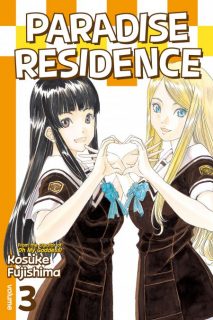 Paradise Residence, Volume 3 by Kosuke Fujishima. Admittedly, it has been quite some time since I’ve read the first two volumes of Paradise Residence, but I really don’t remember the characters being especially infatuated with motorbikes and motorcycles which is something that is quite prominent in the third and final volume. Maybe I just completely missed it before and that’s why it seemed to suddenly come out of nowhere, but the resulting story is nice. However, it’s another sudden development that becomes the dramatic focus of the rest of the volume–due to some unfortunate circumstances, the dorm is scheduled for demolition rather than renovation and the young women living there must do all that they can to save their beloved home. They come up with a rather creative solution to their problem that, while it strains believability, is impressively audacious and clever. Paradise Residence is a series that I enjoyed much more than I thought or expected I would. It doesn’t really have a lot of substance or depth to it, but it’s a pleasant slice-of-life manga set in an all-girls high school. Though not particularly nuanced, most of the characters are generally likeable. Even with the occasional bit of drama, Paradise Residence tends to be a fairly quiet and low-key series. The artwork is attractive, too, although Fujishima seems fond of drawing characters with one eye closed; I’m not sure if they’re supposed to be winking or what.
Paradise Residence, Volume 3 by Kosuke Fujishima. Admittedly, it has been quite some time since I’ve read the first two volumes of Paradise Residence, but I really don’t remember the characters being especially infatuated with motorbikes and motorcycles which is something that is quite prominent in the third and final volume. Maybe I just completely missed it before and that’s why it seemed to suddenly come out of nowhere, but the resulting story is nice. However, it’s another sudden development that becomes the dramatic focus of the rest of the volume–due to some unfortunate circumstances, the dorm is scheduled for demolition rather than renovation and the young women living there must do all that they can to save their beloved home. They come up with a rather creative solution to their problem that, while it strains believability, is impressively audacious and clever. Paradise Residence is a series that I enjoyed much more than I thought or expected I would. It doesn’t really have a lot of substance or depth to it, but it’s a pleasant slice-of-life manga set in an all-girls high school. Though not particularly nuanced, most of the characters are generally likeable. Even with the occasional bit of drama, Paradise Residence tends to be a fairly quiet and low-key series. The artwork is attractive, too, although Fujishima seems fond of drawing characters with one eye closed; I’m not sure if they’re supposed to be winking or what.
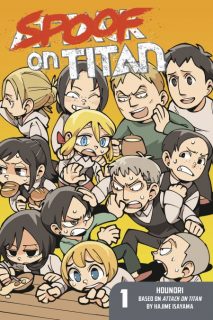 Spoof on Titan, Volume 1 by Hounori. In general the manga spinoffs of Hajime Isayama’s Attack on Titan depend on readers having at least some familiarity with the original series, although to varying degrees. Spoof on Titan perhaps requires a little more than many of the others as the humor relies heavily on knowledge of the characters and their personalities. Unlike Attack on Titan: Junior High, the other Attack on Titan comedy series, Spoof on Titan is firmly set in the world of the original manga. Granted, it’s a much more friendly version of that world–the Titans, though mentioned frequently, barely make an appearance and the death, destruction, and violence has been greatly toned down. The gore and darkness of Attack on Titan aren’t really to be found in Spoof on Titan. Hounori’s illustrations and character redesigns are pretty cute, too. Spoof on Titan is a four-panel comedy manga which is a format that I tend to really like when it’s done well, but the comics in Spoof on Titan tended to be fairly hit-or-miss for me. Some of them legitimately made me laugh while I barely cracked a smile at others. Overall, though, I am largely enjoying the series and find it amusing. I’m not sure that I would necessarily want to binge-read Spoof on Titan, but the series can be fun in small doses. The first volume reads like a collection of comedic Attack on Titan bonus manga, which is essentially what it is even if Isayama himself isn’t directly working on the series.
Spoof on Titan, Volume 1 by Hounori. In general the manga spinoffs of Hajime Isayama’s Attack on Titan depend on readers having at least some familiarity with the original series, although to varying degrees. Spoof on Titan perhaps requires a little more than many of the others as the humor relies heavily on knowledge of the characters and their personalities. Unlike Attack on Titan: Junior High, the other Attack on Titan comedy series, Spoof on Titan is firmly set in the world of the original manga. Granted, it’s a much more friendly version of that world–the Titans, though mentioned frequently, barely make an appearance and the death, destruction, and violence has been greatly toned down. The gore and darkness of Attack on Titan aren’t really to be found in Spoof on Titan. Hounori’s illustrations and character redesigns are pretty cute, too. Spoof on Titan is a four-panel comedy manga which is a format that I tend to really like when it’s done well, but the comics in Spoof on Titan tended to be fairly hit-or-miss for me. Some of them legitimately made me laugh while I barely cracked a smile at others. Overall, though, I am largely enjoying the series and find it amusing. I’m not sure that I would necessarily want to binge-read Spoof on Titan, but the series can be fun in small doses. The first volume reads like a collection of comedic Attack on Titan bonus manga, which is essentially what it is even if Isayama himself isn’t directly working on the series.


